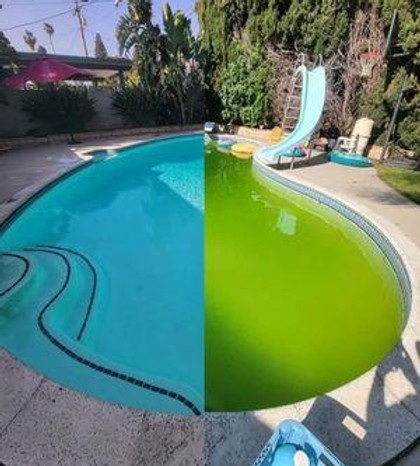Owning a swimming pool is a luxury that brings relaxation, fun, and beauty to your outdoor space. However, maintaining that crystal-clear water and spotless surface requires consistent care and attention. That’s where pool maintenance services and pool pressure washing come into play.
These professional services ensure your pool remains hygienic, visually appealing, and safe for everyone to enjoy. Whether you’re a new pool owner or looking to improve your current cleaning routine, understanding these essential services will help you extend your pool’s lifespan and prevent costly repairs in the long run.
Why Pool Maintenance Services Are Essential
Regular pool maintenance services are the backbone of pool care. They go beyond simple cleaning, focusing on water chemistry, filtration efficiency, and the overall condition of your pool equipment. Skipping routine maintenance can lead to murky water, algae buildup, or even equipment damage.
1. Balancing Water Chemistry
The chemical balance of your pool water determines how safe and comfortable it is for swimmers. Professionals regularly test and adjust chlorine, pH, alkalinity, and calcium hardness levels to maintain optimal conditions. This balance prevents bacteria growth and ensures your pool doesn’t irritate the skin or eyes.
2. Cleaning and Skimming
Leaves, dirt, and debris can quickly accumulate on the surface and floor of your pool. Maintenance experts use specialized tools to remove debris, brush pool walls, and vacuum the floor — keeping your pool water clear and fresh.
3. Filter and Pump Inspections
Your pool’s filtration system is vital for water circulation and cleanliness. Maintenance technicians inspect, clean, and sometimes replace filters or pump components to ensure they operate efficiently. This proactive care reduces the risk of equipment failure and extends its lifespan.
4. Preventing Algae and Stains
Professional pool maintenance services include using algaecides and other preventive treatments to stop algae from forming. Additionally, technicians monitor for staining and discoloration caused by minerals, ensuring your pool always looks inviting.
The Importance of Pool Pressure Washing
While regular maintenance keeps your pool running smoothly, pool pressure washing is a deeper cleaning method that removes stubborn dirt, grime, and algae buildup from the pool’s surfaces. It’s especially useful for pools that haven’t been cleaned in a while or after the off-season.
1. What Is Pool Pressure Washing?
Pool pressure washing involves using high-pressure water jets to blast away dirt, algae, calcium deposits, and other contaminants from the pool walls, tiles, and deck. This technique restores the pool’s original look and texture without the need for harsh chemicals.
2. When Should You Pressure Wash Your Pool?
Experts recommend scheduling pool pressure washing at least once or twice a year, depending on your pool’s usage and surrounding environment. Signs that your pool needs pressure washing include:
- Algae or black mold buildup on tiles or grout
- Discolored or stained pool surfaces
- Slippery or rough pool steps
- Foul odors from the pool area
Regular pressure washing not only improves your pool’s appearance but also enhances hygiene by removing contaminants that normal cleaning can’t reach.
3. Benefits of Pool Pressure Washing
- Deep Cleaning: Removes stubborn buildup that normal scrubbing can’t.
- Restored Appearance: Revives faded surfaces and enhances your pool’s visual appeal.
- Increased Safety: Eliminates slippery algae and mold that can cause accidents.
- Extended Lifespan: Prevents long-term surface damage by keeping materials clean and strong.
Combining Pool Maintenance Services with Pressure Washing
To achieve the best results, pool owners should combine regular pool maintenance services with periodic pool pressure washing. Together, they form a complete pool care strategy that ensures both functionality and aesthetics.
1. Seasonal Maintenance Schedule
- Spring: Deep clean and inspect all equipment before heavy use.
- Summer: Weekly maintenance to handle higher swimmer traffic.
- Fall: Skim leaves and balance chemicals as temperatures drop.
- Winter: Pressure wash and cover the pool to protect it from debris.
2. Environmental Factors
Pools surrounded by trees or gardens may need more frequent cleaning due to falling leaves and pollen. Similarly, areas with hard water often require additional treatment to prevent calcium buildup — something pool pressure washing can effectively handle.
3. Professional vs. DIY Care
While some pool owners prefer a DIY approach, professional pool maintenance services provide expertise and equipment that guarantee thorough cleaning and long-term efficiency. Professionals also identify issues like leaks, cracks, or motor problems before they become serious.
Final Thoughts
A sparkling, healthy pool requires consistent effort and the right combination of cleaning techniques. Pool maintenance services handle the day-to-day upkeep and water balance, while pool pressure washing provides that deep, restorative clean that keeps your pool looking brand new.
By investing in both services, you ensure your pool remains a safe, beautiful centerpiece of your outdoor space — ready for relaxation, fun, and memorable moments all year round.
FAQs
1. How often should I schedule pool maintenance services?
It’s recommended to schedule professional pool maintenance once a week during the swimming season to maintain balanced water and prevent algae growth.
2. Is pool pressure washing safe for all types of pools?
Yes, when done correctly by professionals, pressure washing is safe for concrete, fiberglass, and tile pools. However, water pressure must be adjusted based on the material to avoid damage.
3. Can I pressure wash my pool myself?
You can, but it’s best left to professionals who have the right equipment and know the correct techniques to avoid surface damage.
4. What happens if I neglect regular pool maintenance?
Neglecting maintenance can lead to algae buildup, cloudy water, corrosion, and expensive equipment repairs.
5. When is the best time to pressure wash a pool?
The best time is before the swimming season begins or after it ends, ensuring your pool stays clean and protected year-round.





Comments